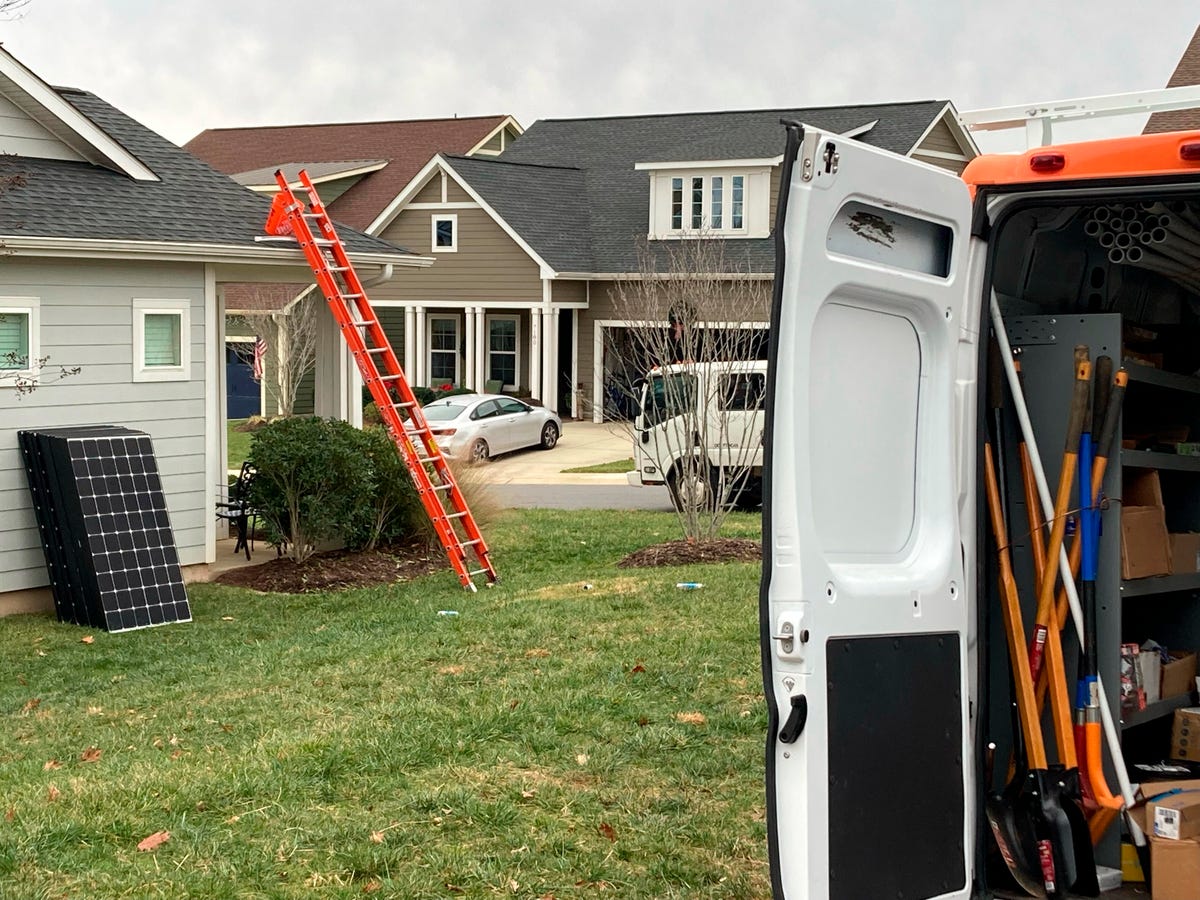There’s hardly an industry that artificial intelligence hasn’t touched by this point — and residential solar is no exception.
That’s good news for solar customers: AI promises to make solar installations faster and potentially cheaper, while also improving the performance of a home energy system over time.
In the not-so-distant future, AI could help you design your solar system, analyze your property, optimize a home battery (if you have one) and even predict maintenance costs after the panels are installed.
Can solar panels save you money?
Interested in understanding the impact solar can have on your home? Enter some basic information below, and we’ll instantly provide a free estimate of your energy savings.
“The [solar] system’s justified without the AI, and the AI is just going to keep on increasing the consumer’s value,” said Frank Magnotti, CEO at Electriq Power, an energy storage company.
Here’s what you need to know about the potential benefits, and risks, of AI’s increasing role in residential solar.
What improvements can AI do for the residential solar industry right now
AI has gotten a lot of buzz lately, but the term refers to a broad range of technologies, according to Magnotti. He says there are two main types of AI that are important for solar. One is the Chat-GPT-style bot that many of us are now familiar with, and the other is the engineering-type AI that can do complex optimization for a home energy system.
The chat-style AI can already play a role in the front end of the solar process, assisting or even replacing the traditional salesperson, Magnotti said. And the engineering side of AI acts as the crucial “smarts” embedded in a system.
A solar panel installation taking place in North Carolina. Experts say future applications of AI could help streamline the installation process and speed up the process and costs.
Lindsey Nicholson/UCG/Universal Images Group/Getty
Risks associated with scaling AI technology across the residential solar energy sector
Magnotti sees little risk in AI’s growing role in solar. In fact, he says whatever risk there might be in letting an AI make decisions will only decrease as time goes on.
“The bigger the scale, the lower the risk,” he said, because AI “learns” over time as it consumes more information. “The more data that you have, the better your AI is going to be…This is just going to get better and better, it’s not going to get worse with scaling.”
What should solar panel fence-sitters do with this information?
It’s true that AI is going to improve — and potentially lower the cost of — solar installations, but that doesn’t mean you should wait to buy.
“There’s no need to wait, and it’s only going to get better, and your economics are going to keep getting better,” Magnotti said.
Plus, existing customers are likely to benefit from continued improvements in AI software. If you have a home battery paired with your solar system, for example, your battery’s computer could get automatic software updates every time the AI improves, without any costs or new installations on your end. In other words: The hardware won’t change very much with AI, and you can always get a software update.
“The economics are there for solar right now,” Magnotti said. “You don’t have to wait.”
Editors’ note: CNET is using an AI engine to help create some stories. For more, see this post.



